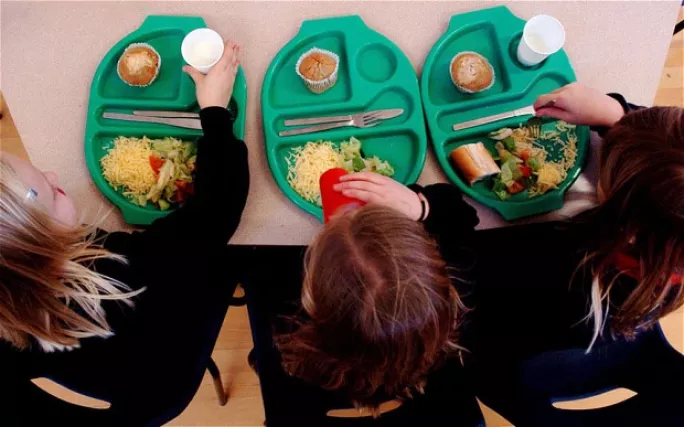Teachers are feeding hungry pupils, survey reveals
More than a quarter of teachers have had to bring food to school to help hungry pupils, a new poll suggests.
The survey of nearly 4,000 teachers conducted by the NASUWT last month also found that more than one in five had had to lend or give money to students hit by poverty.
One said they had seen “children practically hugging radiators, children eating at friends’ houses because they don’t have food at home, [and] mouldy food in packed lunch boxes”.
The union claims that the findings - which also show that 61 per cent of respondents were working in schools that had given or loaned clothing to pupils - are a measure of the damage that government policy is doing to children and young people.
Chris Keates, NASUWT general secretary, said: “Teachers and other public service workers are struggling to pick up the pieces caused by this coalition’s economic and social policies.
“Schools cannot overcome the profound adverse impact of poverty and homeless alone. The government has a responsibility to tackle, not generate, poverty and homelessness.”
The teachers who responded came from a range of schools, but may not be representative of the country as a whole. The union reported that only around a quarter said they worked in schools with “an ‘average’ demographic in terms of deprivation”.
Nearly a third of the teachers - 32 per cent - had seen pupils who had left or arrived at their school in the middle of term in the last year because they had been forced to leave their homes because of financial problems.
The survey results were released as the NASUWT met for its annual conference in Birmingham this weekend. The union’s president, Geoff Branner, yesterday told delegates, that his school, Banbury Academy, Oxfordshire - “less than 15 miles from David Cameron’s constituency home, has to provide a free breakfast for a growing number of our students”.
“Without this, the first food to reach their bellies would not arrive until lunchtime which for us is 1.30 in the afternoon,” he added.
“As teachers, we know that a hungry child cannot concentrate on his or her learning: the brain needs fuel to operate properly.
“Children who come to school too tired because their bedroom was so cold they couldn’t sleep properly, they can’t concentrate either.”
Four-fifths of teachers responding to the survey said that pupils lacked energy and concentration as a result of eating poorly. Other symptoms of pupils’ families’ financial problems included absences from lessons, reported by 69 per cent of the teachers.
“I have been teaching for over 32 years in very poor and difficult inner cities. I have never known such abject poverty as my pupils are suffering at the moment,” one of the teachers surveyed said.
“We are seeing more pupils being told by their parents to stay behind in school at night in order to make sure they can do their homework with light and warmth.”
Child poverty is also on the agenda at the National Union of Teachers’ (NUT) annual conference this weekend. Delegates in Brighton are expected to pass a motion warning that “the UK has proportionally more children in poverty than most other rich countries and that one-third of British children are forced to go without at least one of the things they need, such as three meals a day or adequate clothing”.
The union published a report today revealing that more than half (55 per cent) of students from low income backgrounds are going hungry during the school day because they cannot afford to eat.
The research, released jointly by the NUT, the British Youth Council, Child Poverty Action Group and Kids Company, also found the high cost of taking arts subjects was a deterrent for many students, with 27 per cent of students on free school meals (FSM) opting not to study subjects such as art or music due to the costs of buying extra materials.
More than a third (35 per cent) of FSM students said they were not able to afford a full school uniform, while 21 per cent reported not having all the books and equipment needed for their studies. “This got them into trouble and made them feel different to their peers”, the report said.
A Department for Education spokeswoman said the government was taking “decisive action” to help disadvantaged pupils.
“Around 1.3 million children currently receive a free, nutritious meal at school. We are extending this to all five to seven year-olds in state-maintained schools from September and allocating more than £1million to help schools establish more breakfast clubs,” she said.
“We have invested in the Pupil Premium, raising it from £625m in 2011-12 to £2.5b in 2014-15. This is giving schools the additional resources they need to raise disadvantaged pupils’ attainment, and give them a better start in life.”
Keep reading for just £1 per month
You've reached your limit of free articles this month. Subscribe for £1 per month for three months and get:
- Unlimited access to all Tes magazine content
- Exclusive subscriber-only stories
- Award-winning email newsletters




